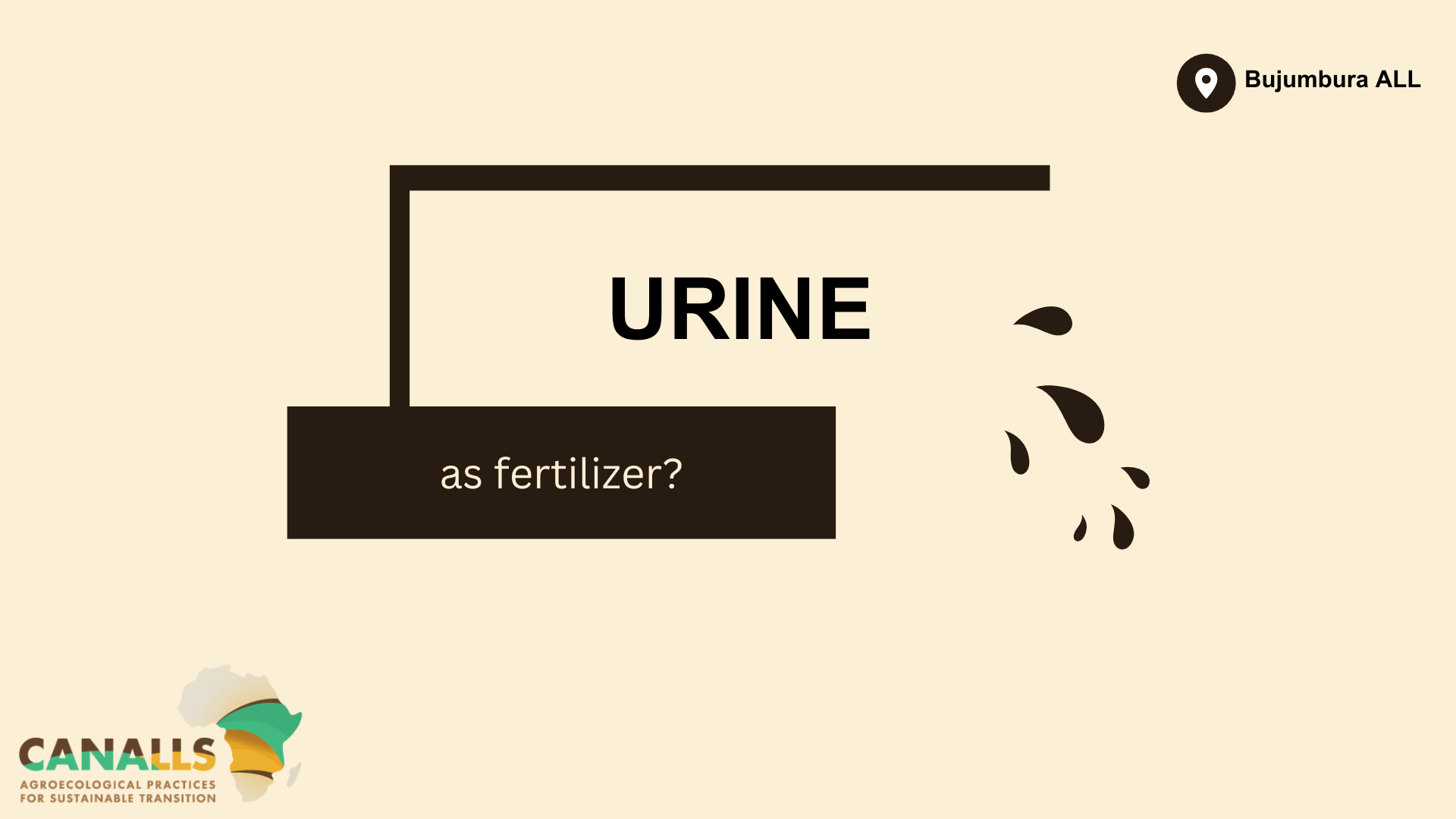When we think of fertilizers, human urine might not be the first thing that comes to mind. Yet, in the experimental fields of Bujumbura, this natural, nutrient-rich resource is making waves in sustainable agriculture. As part of CANALLS Project, researchers and farmers are working together to tackle low soil fertility using an unlikely practice—sanitized urine.
Why Urine?
Low soil fertility is one of the biggest challenges for Bujumbura’s Agroecological Living Lab. Without fertile soil, crops like maize and soybeans struggle to thrive. Now, enter urine: a safe, effective, and affordable alternative.
Urine contains essential nutrients like nitrogen, phosphorus, and potassium—key components for plant growth. Unlike solid waste, it is easier, cheaper, and safer to collect, handle, and apply.
However, more information is needed to help farmers understand the full benefits of sanitized urine. By demonstrating its potential to improve soil fertility and boost crop yields, this project is paving the way for reducing reliance on expensive, synthetic inputs.
The experiment in Bujumbura
The trials in Bujumbura aim to address key questions around the use of sanitized urine as a fertilizer for maize-legume intercrops. The objectives of the experiment include:
- Evaluating the risks associated with human urine use as a fertilizer for maize-legume intercrops in the Bujumbura Agroecological Living Lab (ALL).
- Modeling and validating the potential amounts of organic nutrients that can be produced from human, sanitized urine by farmers working in cooperatives in Bujumbura.
- Evaluating the response curve of maize-legume intercrops to increasing doses of human urine to understand its effect on crop productivity and determine optimum dosages.
- Performing an economic analysis to assess the feasibility and cost-effectiveness of using sanitized urine as a fertilizer for maize-legume intercrops.
Building a Sustainable System
By aligning the recommended urine application rates with the local use of urea (37.5 kg/ha), researchers are developing a system that balances sustainability with practicality. Beyond boosting soil fertility, the project is also exploring the return on investment (ROI) for farmers, such as the cost of establishing eco-san toilets or purchasing urine from neighbors.
The use of sanitized urine as a fertilizer presents a wide range of benefits—not only for farmers but also for the private sector, governments, and researchers. The CANALLS project is at the heart of this effort, investigating how these benefits can be maximized and scaled.



